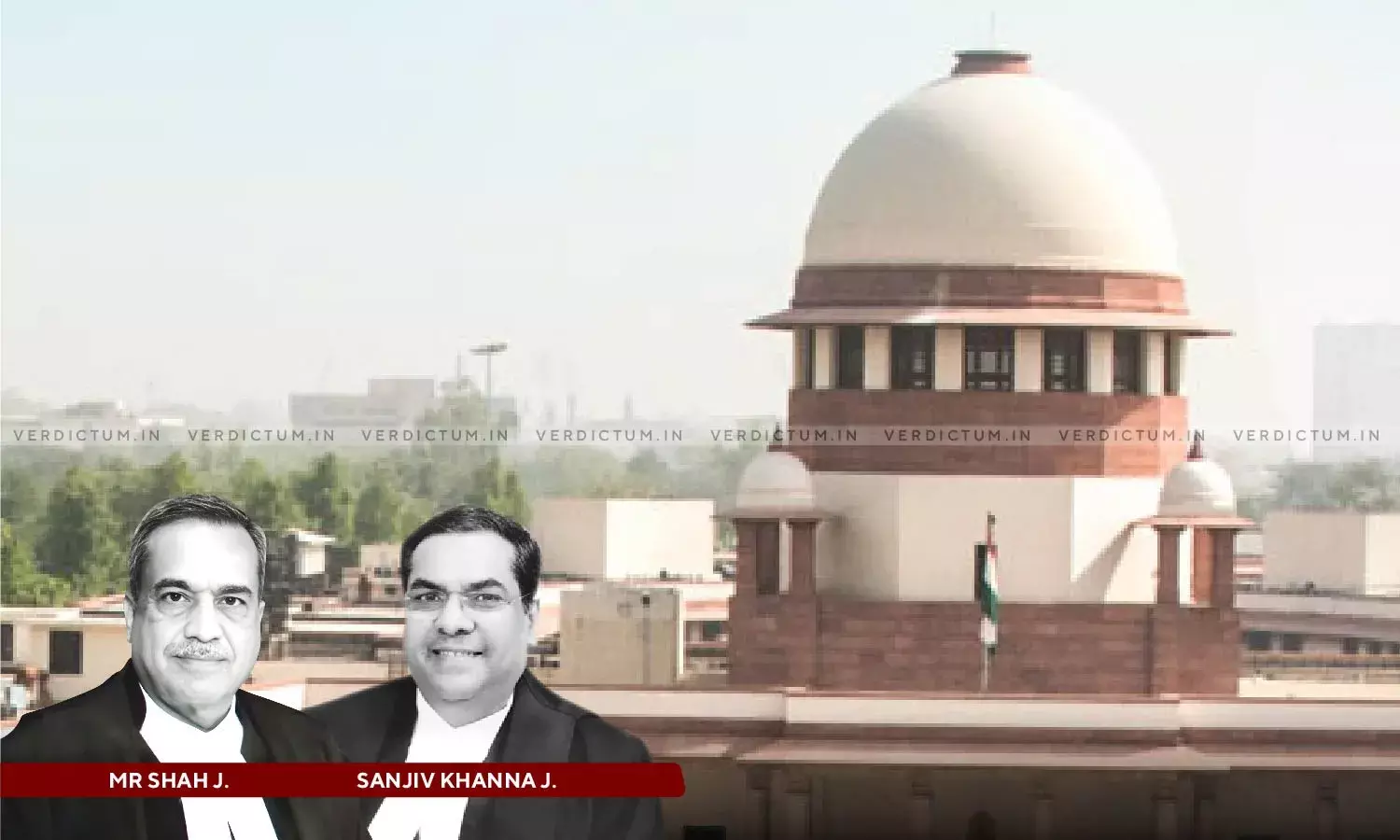Operational Creditors Must Be Paid Equivalent To The Amount To Which They Would Have Been Entitled To Incase Of Liquidation- SC

While modifying the judgment of NCLAT by directing that the Appellant would be treated as a secured creditor, who would be entitled to all rights and obligations as applicable to a secured creditor in terms of Sections 52 & 53 of the Insolvency & Bankruptcy Code, the Supreme Court opined that it is the mandate of Section 31 of the IBC that the adjudicating authority should be satisfied that the resolution plan, as approved by the CoC meets with the requirement under Section 30(2).
Therefore, referring to the amended Section 30(2) of IBC post substitution by Act No. 26 of 2019, the Two Judge Bench of Justice M.R. Shah and Justice Sanjiv Khanna clarified that: “the amendment introduced by Act No. 26 of 2019 ensures that the operational creditors under the resolution plan should be paid the amount equivalent to the amount which they would have been entitled to, in the event of liquidation of the Corporate Debtor under Section 53 of the Code.”
Advocate Anannya Ghosh appeared for the Appellant, whereas, Advocate S.S Shroff and Advocate Rabin Majumder appeared for the Respondent.
Going by the background of the case, one Amtek Auto Limited (Corporate Debtor) approached the Appellants to extend a short term loan facility of INR 500 crores to its group companies i.e. Brassco Engineers Ltd. and WLD Investments Pvt. Ltd. for the ultimate end use of the Corporate Debtor. Pursuant thereto, two Security Trustee Agreements were executed between the first Appellant and WLD as well as between the first Appellant and Brassco.
Thereafter an application under Section 7 of IBC, 2016 was admitted against the Corporate Debtor and the Respondent was appointed as the resolution professional. The first Appellant filed its claim as a secured creditor of the Corporate Debtor and submitted Form C claiming a principal amount of INR 500 crores but the same was rejected by the Resolution Professional. Accordingly, the Appellants filed another application under Section 60(5) claiming the right based on pledged shares. This was rejected by both the Adjudicating Authority as well as the NCLAT, observing that the Appellants not having advanced any money to the Corporate Debtor as a financial debt would not be coming within the purview of a financial creditor of the Corporate Debtor. Hence, the present appeal.
After considering the submissions and referring to the judgments in case of Anuj Jain Interim Resolution Professional for Jaypee Infratech Limited vs. Axis Bank Limited [(2020) 8 SCC 401] and Phoenix ARC Private Limited vs. Ketulbhai Ramubhai Patel [(2021) 2 SCC 799], the Apex Court opined that the Corporate Debtor i.e., Amtek was not liable to repay the loans advanced by the predecessor interest of the Appellant i.e., Vistra ITCL, in respect of which there were detailed and separate agreements executed by the lenders with Brassco and WLD.
The Apex Court in the present case was posed with a situation wherein, the first Appellant, a secured creditor, was being denied the rights under Sections 52 & 53 of IBC in respect of the pledged shares, whereas, the intent of the amended Section 30(2) read with Section 31 is contrary, as it recognizes and protects the interests of other creditors who are outside the purview of the CoC.
The Apex Court elucidated that they can treat it as a secured creditor of the Corporate Debtor to the extent of the estimated value of the pledged share on the date of commencement of the CIRP or the secured creditor could be given the option to realize the security interest.
Noting that the first Appellant was a secured creditor to the extent of the shares pledged to it by the Corporate Debtor and held the first right in pledge on 66.77% shareholding in JMT Auto Limited, the Bench observed that security interest can be created for credit facilities/loan advanced to another person and the first Appellant had a security interest in the pledged shares.
On the issue of pledge, the Bench referred to the judgment in the case of PTC India Financial Services Limited vs. Venkateswarlu Kari and Another [(2022) 9 SCC 704] and opined that the right to property vests in the pawnee only as far as it is necessary to secure the debt.
Accordingly, the Apex Court partly modified the judgment of the NCLAT and affirmed the view taken by the NCLT by holding that the Appellant i.e., Vistra ITCL (India) Limited would be treated as a secured creditor, who would be entitled to all rights and obligations as applicable to a secured creditor in terms of Sections 52 and 53 of the Code, and in accordance with the pledge agreement.
Cause Title: M/s. Vistra ITCL (INDIA) Ltd and Ors. v. Dinkar Venkatasubramanian and Anr.
Click here to read/download Judgment

